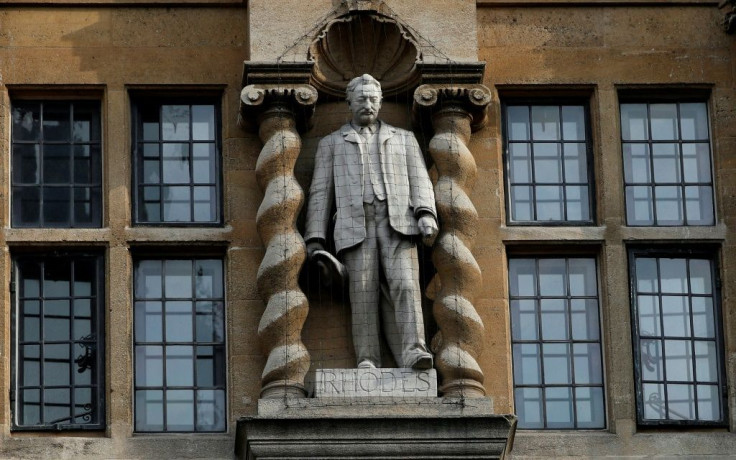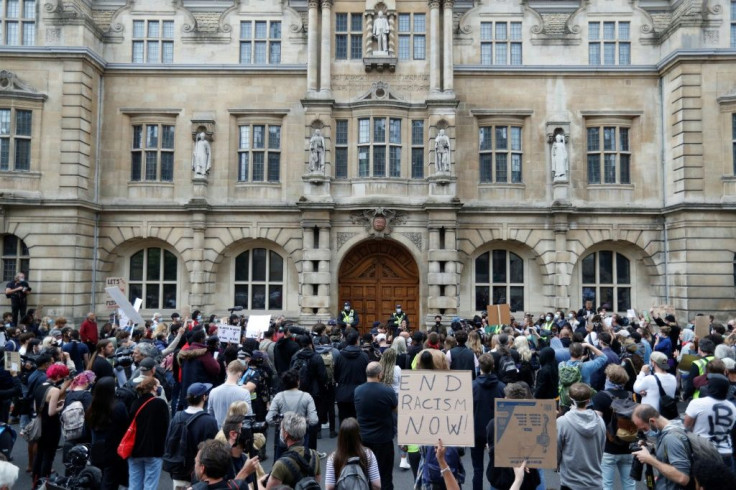Rhodes Will Go - Oxford College Backs Statue Removal
An Oxford University college has voted in favour of removing a statue of 19th-century colonialist Cecil Rhodes, less than two weeks after thousands of protestors called for it to be taken down.
Oriel College said it also wanted to set up an independent inquiry into the "key issues" surrounding the statue of the Victorian mining tycoon.
"Both of these decisions were reached after a thoughtful period of debate and reflection and with the full awareness of the impact these decisions are likely to have in Britain and around the world," it said in a statement Wednesday.
The move comes after a large protest by the Rhodes Must Fall campaign on June 9, with demonstrators chanting "Take it down!" and "Decolonise!"
The campaign to remove the statue, which started four years ago, was reignited by the global explosion of Black Lives Matter demonstrations, following the killing in the United States of African-American George Floyd by a white police officer.

Campaigners had also demanded changes to the Rhodes scholarship, which has been awarded to more than 8,000 overseas students to study at Oxford University, since 1902.
Rhodes -- a white supremacist like many builders of the British empire -- gave his name to the territories of Rhodesia, now Zimbabwe and Zambia, and founded the De Beers diamond company.
He studied at Oxford and left money to Oriel College after his death in 1902.
Oriel's statement said it would examine how to improve access and attendance of Black Asian and minority ethnic undergraduate and graduate students.
The independent commission of inquiry would also review "how the college's 21st-century commitment to diversity can sit more easily with its past."

Statues commemorating Britain's colonial past have become the focus of anger in recent weeks, most dramatically with the toppling of a memorial to the slave trader Edward Colston in Bristol.
In addition, a London statue of British wartime leader Winston Churchill was controversially boxed up after anti-racism protests.
The Rhodes Must Fall campaign said it was cautiously optimistic after the college's announcement.
"However, we have been down this route before, where Oriel College has committed to taking a certain action, but has not followed through: notably, in 2015, when the college committed to engaging in a six-month-long democratic listening exercise," it said in a statement.
"Therefore, while we remain hopeful, our optimism is cautious," it said, urging the college to commit to removing the statue.
Susan Brown, the leader of Oxford City Council, said she welcomed the news from Oriel College and paid tribute to the campaigners.
"The city council would welcome an early submission of a formal planning application from Oriel to accompany the review process and feed into it," she said in a statement.
"I would like to pay particular tribute to the Rhodes Must Fall campaign who have seen their aims come a big step closer today, and also to Black Lives Matter campaigners who have reinvigorated this debate about our history and how it should be recognised."
Earlier on Wednesday, universities minister Michelle Donelan said she was opposed to removing the statue, calling it "short-sighted".
"Because if we cannot rewrite our history, instead what we should do is remember and learn from it," she told a Higher Education Policy Institute event, the PA Media news agency reported.
© Copyright AFP 2024. All rights reserved.





















